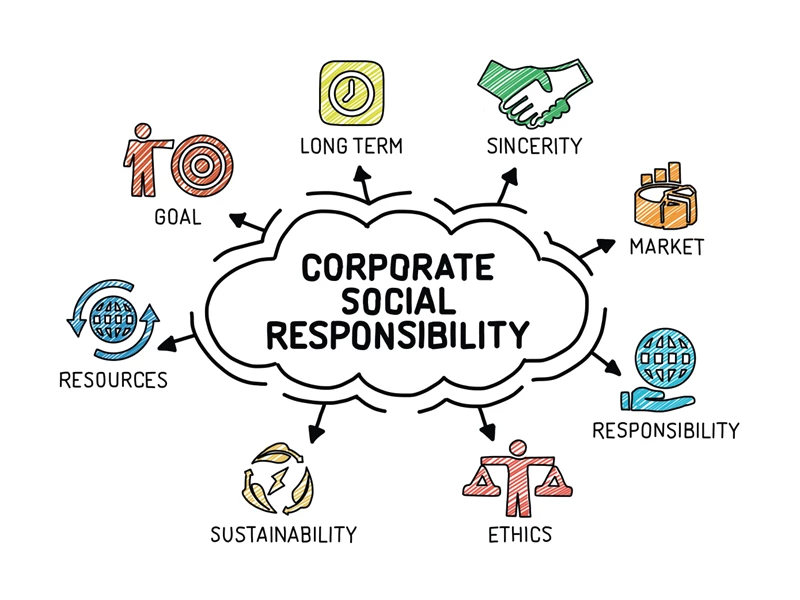Business with Responsibility: CSR, Green Practices, and Ethical Finance
Introduction
In today’s world, success is not measured only by profit. A company is respected when it shows responsibility toward people, society, and the planet. This balance between making money and doing the right thing is called sustainability and ethics.
It includes three main ideas:
-
Corporate Social Responsibility (CSR)
-
Green Business
-
Ethical Finance
Let’s understand each in simple terms.
1. Corporate Social Responsibility (CSR) – Business with a Heart
CSR is when a company cares about more than just selling products. It means giving back to society and making sure business decisions don’t harm people or communities.
Why It’s Important
-
Builds customer trust and loyalty.
-
Improves brand image.
-
Solves social challenges like poverty, education gaps, or poor healthcare.
Common CSR Actions
-
Funding schools, hospitals, or community programs.
-
Offering fair wages and safe conditions for employees.
-
Partnering with charities or NGOs to help underprivileged groups.
Example
A food company may donate meals to orphanages for every product sold. This makes a direct impact on society while strengthening the brand’s reputation.
2. Green Business – Caring for the Environment
A green business means running operations in a way that reduces pollution, saves energy, and protects natural resources.
Why It’s Important
-
Customers prefer eco-friendly products.
-
It helps fight climate change.
-
Lower waste and energy use often reduce business costs too.
Green Business Practices
-
Using solar panels or wind energy in offices and factories.
-
Reducing plastic packaging and switching to recyclable materials.
-
Planting trees or investing in clean transportation.
Example
A clothing brand that makes products from recycled fabrics is a green business. It saves resources and appeals to environmentally conscious buyers.
3. Ethical Finance – Investing with Values
Ethical finance means using money in ways that are fair, responsible, and beneficial for society. The focus is not only on profit but also on positive impact.
Why It’s Important
-
Prevents money from funding harmful industries like weapons or child labor.
-
Supports businesses that treat workers and the planet with respect.
-
Attracts investors who care about sustainability.
Ethical Finance Practices
-
Banks providing loans to eco-friendly businesses.
-
Investment funds that support renewable energy projects.
-
Microloans that help poor families start small businesses.
Example
Instead of investing in a company that produces harmful chemicals, an investor chooses a firm that builds wind turbines. This way, money grows while supporting a cleaner future.
Conclusion
Sustainability and ethics show that profit and responsibility can go hand in hand.
-
CSR focuses on giving back to communities.
-
Green business protects the environment.
-
Ethical finance ensures money is used in fair and responsible ways.
Companies that follow these principles not only grow stronger but also create a positive legacy for people and the planet.

